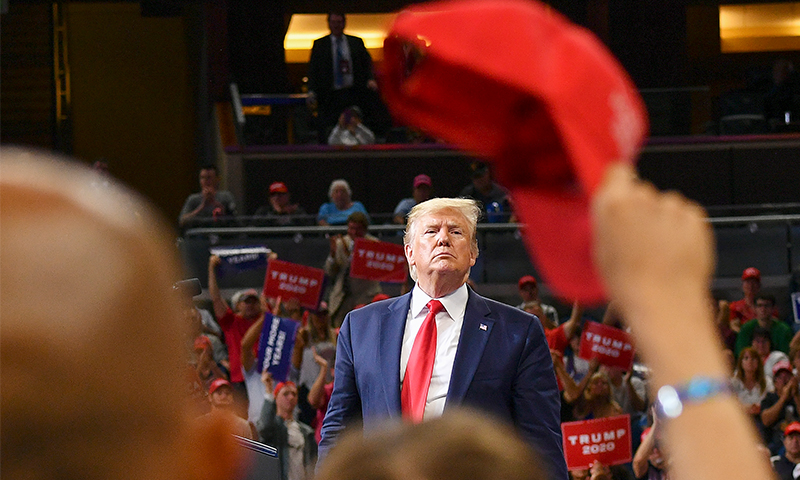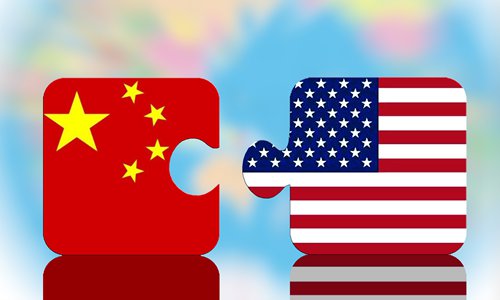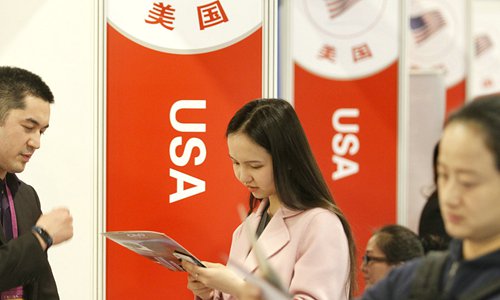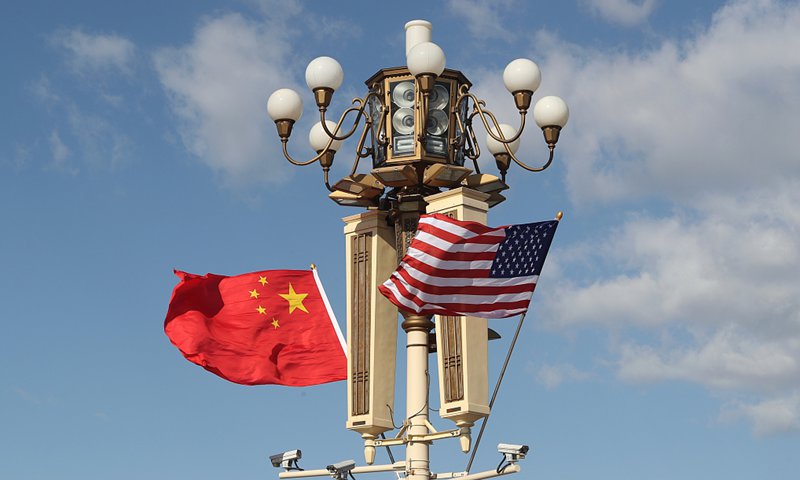China should prepare for drawn-out trade war
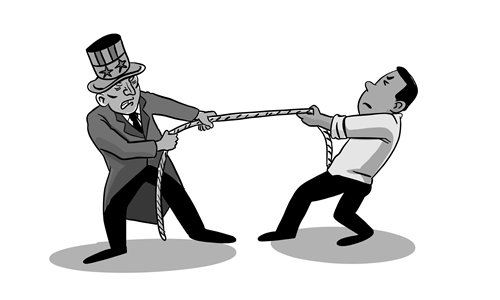
Illustration: Luo Xuan/GT
The top leaders of China and the US are expected to meet at the G20 summit in Japan. Stock markets on both sides rallied in expectation of the two sides being back at the table to reach a trade deal.
Despite the expectations, China still needs to prepare for a protracted trade war, which may last for 30 years or longer given the US' bad record of being inconsistent and failing to honor its promises.
China-US relations, after 40 years of development, have come to a tipping point. Some voices within the US believe the original "engagement and containment" strategy against China is obsolete and it is now time to check, contain and tear down China. This kind of voice has silenced other ones that favor bilateral cooperation.
After previous twists and turns in trade talks, motives and thinking on the US side have become obvious. First, the US believes China will challenge its hegemony. Second, the US initiated the trade war by attacking China's manufacturing industry. Third, the US believes this will be its last chance to take down China. Since Donald Trump came to office, he has been surrounded by advisors who hold hawkish views about China. Those advisors want China to take the blame for the hollowing out of the US manufacturing industry and the problems of the US middle class.
China wants a new type of relationship between the major power that does not include misunderstandings, conflicts and confrontations. The foundation of the new relations includes respect for each other's core interests, major concerns and mutual benefits.
The ultimate goal for the Chinese people is to achieve national rejuvenation and the Chinese Dream. The basic appeal of the Chinese people will not get in the way of the US. But the US just won't believe it.
Moreover, the US has changed from being open to conservative. The one-time flagbearer of liberalism has turned to unilateralism and bullying. The country's credibility has fallen.
The US not only attacks China on trade and manufacturing but also targets China's technological sector and industrial policy. It may also target China's financial sector or overseas talents.
The situation indicates that the conflict between China and the US is inevitable so China should be vigilant.
Trade talks are expected to resume as the top leaders of the two countries are to meet in Japan. Even if future trade talks make some headway, the US could make up new pretexts to pressure China. There is every likelihood that the US will scuttle the almost-reached trade deal again.
Even if the Democrats win the presidential election in 2020, it will not change the US' fundamental strategy against China. Strategies to keep China checked and maintain US global leadership have become a bipartisan consensus.
China should not be surprised at the tough stand against it within the US. The US needs an imaginary enemy when its global hegemony position becomes shaky. As long as the mindset on the US side does not change, the trade war will likely be protracted. It may last for 30 years or even 50 years.
In a protracted trade war, China has advantages. Trump has miscalculated because he might have thought China would give up by now under extreme pressure. But China does not bend its knees.
First, China is confident about winning against the US. The 40 years of reform and opening-up have proved that China has made the right decisions. China should continue to reform and keep a market-oriented economic development, focusing on cutting costs and improving production efficiency.
Second, China should anticipate the hardship ahead. Once the US imposes tariffs on the rest of $300 billion worth of Chinese products, China will have to work out accurate countermeasures.
Third, the government should consider giving subsidies to expand the domestic market. China has a vast market in rural areas that is not saturated.
There are three areas China should heed for potential threats.
One is the financial sector, where the global payment system is built around the US dollar. The US has more leverage on that front.
Second is the energy sector where China has high dependence on oil from the Middle East. China needs to have a stable energy system.
The third concern lies in the ideological field. The US is likely to attack China with theories like a clash of civilizations, questioning the path China has chosen.
Understanding that there is this tipping point, China should prepare for a longer trade row. China and the US can only find common ground when the US actually pays the price for the trade war.
The author is a former Chinese vice minister of commerce and executive deputy director of the China Center for International Economic Exchanges. bizopinion@globaltimes.com.cn

